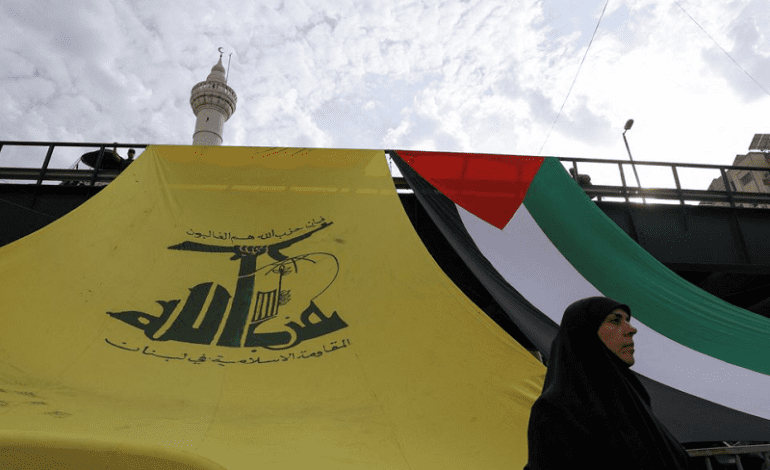BEIRUT — On Thursday, the Hezbollah group signaled that it would halt its attacks on Israel from Lebanon when the Israeli offensive on the Gaza Strip stops, but that it was also ready to keep on fighting if Israel continued hostilities.
Hezbollah and the Israeli army have been trading fire since the Palestinian group Hamas attacked southern Israel from the Gaza Strip on Oct. 7, in a steadily intensifying conflict that has fueled concern of wider escalation.
“The war in the south is linked to the aggression on Gaza on the one hand, and to securing means of protection for our country on the other,” senior Hezbollah politician Hassan Fadlallah said.
“When the (Israeli) occupation halts its aggression on Gaza, this front stops, because it is a supportive front,” he said in comments made at an event to commemorate a Hezbollah field commander killed in an Israeli strike earlier this week.
On Tuesday, two sources familiar with Hezbollah’s thinking said that the group would halt fire on Israel if Hamas agrees to a proposal for a truce in Gaza — unless Israeli forces kept shelling Lebanon, according to a Reuters report.
Mediators are seeking to secure a Gaza truce, which President Biden has said he hopes will be in place by the Muslim fasting month of Ramadan, expected to start this year on March 10.
On Sunday, Israeli Defense Minister Yoav Gallant indicated that Israel planned to increase attacks on Hezbollah in the event of a possible ceasefire in the Gaza conflict.
But Gallant also left the door open to a diplomatic deal to achieve Israel’s goal of a withdrawal of Hezbollah fighters from the border, and the return of tens of thousands of Israelis who have fled the area.
The fighting, the worst between Hezbollah and Israel since 2006, has also uprooted tens of thousands of people in Lebanon.
Referring to Gallant’s comments, Fadlallah said he had threatened to “continue targeting Lebanon.”
“The resistance will repel all aggression on its country,” Fadlallah said, in the comments, a copy of which were circulated by his office.
U.N. chief says Gaza killing could require independent investigation

United Nations Secretary-General Antonio Guterres.
– File photo
On Thursday, United Nations Secretary-General Antonio Guterres said the killing of more than 100 people seeking humanitarian aid in Gaza was a situation that would require an effective independent investigation.
Speaking in St. Vincent and the Grenadines ahead of a regional summit, Guterres said he was “shocked” by the latest episode in the war with Israel, in which Palestinian authorities say more than 30,000 civilians have been killed since Oct. 7.
Responding to questions on the failure of a recent Security Council resolution seeking a ceasefire, Guterres said worsening geopolitical divides have “transformed the veto power into an effective instrument of paralysis of the action of the Security Council.”
“I am totally convinced that we need a humanitarian ceasefire and we need the unconditional and immediate release of hostages and that we should have a Security Council able to achieve these objectives,” Guterres said.
Houthis say they will introduce military “surprises” in the Red Sea

Yemen’s Houthi leader Abdul Malik al-Houthi. – File photo
On Thursday, Yemen’s Houthi leader Abdul Malik al-Houthi said in a televised speech that the Yemen military will introduce military “surprises” in their Red Sea operations.
“Our military operations will continue and advance and we have surprises that our enemies will not expect at all,” al-Houthi said.
Yemen’s military have repeatedly launched drones and missiles against international commercial shipping since mid-November, saying they are acting in solidarity with Palestinians against Israel’s war on Gaza.
Their Red Sea attacks have disrupted global shipping and forced firms to re-route to longer and more expensive journeys around southern Africa and stoked fears that the Israeli war on Gaza could spread to destabilize the wider Middle East.






Leave a Reply